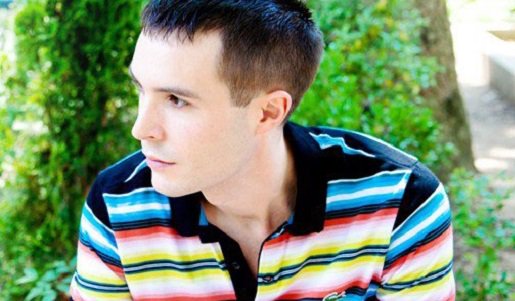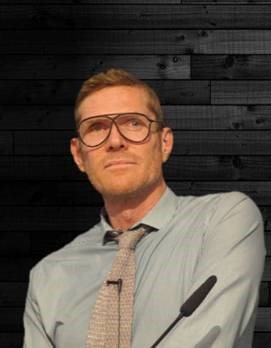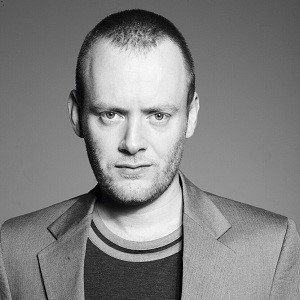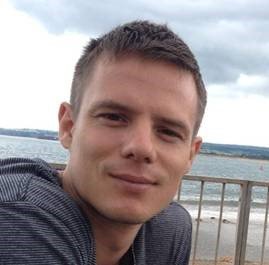How to fall in love as a gay man
By Will Stroude

I’ve always dreamed of love. Sometimes it was as simple as having somebody to take to a film. In my more pretentious moments – of which there were many at 18 – it was living penniless in a Parisian garret; physically starving, but eternally fulfilled by emotion. These fantasies drifted over different men like rose-tinted veils in my 20s, but never evolved into reality.
At 30, I’ve realised there were many reasons I didn’t find love. For one, my primary love for a decade was alcohol. Drink never replaced my yearning for intimacy, but it filled the darkened glass enough to distract. And the glass was darkened because I didn’t love myself. I often wondered why I would drink so much that I switched myself off: to annihilation point.
I’m not here to piously preach. At the risk of AA’s wrath, there are many great things about alcohol, and I’ve forged beautiful, long-lasting friendships in its bonds. But taking a year’s sabbatical from booze has given me a lucidity back to my life. I downed drinks when out partly because I wanted the drug, but also because I wanted to annihilate myself.
And if I didn’t love myself, how could I accept that anybody else could truly love me? I’ve written before about how I would find myself obsessively infatuated with guys I didn’t really know. But with guys who were interested in me, I would always find something wrong. The grass was always Grindr. I put up so many barriers when I did have boyfriends, I’m surprised they lasted long at all.
Because that dream of love was just that: a dream; vague and insubstantial. There was never any reality as to what love is, or might be. If we really deconstruct that teenage Parisian garret fantasy, it came from watching Total Eclipse as an impressionable teenager in the hope of seeing Leonardo DiCaprio naked. Then compounded by reading Giovanni’s Room: a gay tragedy. Hardly a strong basis for laying a relationship’s real foundations: trust, acceptance, intimacy.
“Love is a very complicated thing because there seems to be so much fantasy around how it feels,” says Katie Evans, a counsellor specialising with gay men. “It seems that it should bring fireworks, excitement and romance, but it can also feel scary, even uncomfortable. We have to open up and allow somebody else to see the whole of us, trust them with our vulnerabilities.”
Although alcohol was always my primary devil, in my mid-20s I enthusiastically (at first) fell into the chillout scene. Katie tells me how sex and drugs can provide an illusion of intimacy.

“Drugs and sex provide us with all the incredible highs without having to let people too close. It can feel particularly difficult to allow another to see everything if you don’t like things about yourself. However by allowing yourself to be real it can encourage others to open up in an honest way too. It’s these real connections that bring moments of intimacy.”
The environment in which we date has also changed. Whilst technology enhances our constant sense of connection to the world via Facebook and Instagram, social media rarely constitutes meaningful bonds. And the hook-up apps from Grindr to Scruff that proliferate many gay men’s lives and mentalities, have influenced our physical encounters to become more fleeting.
“A good friend of mine complained recently about his sex life,” says David Stuart, Wellbeing Programme curator for sexual health clinic 56 Dean Street. “He’s in his forties, very sexy. He told me: ‘No one’s prepared to stay over any more. Forget committing to a date, they can’t even stay longer than it takes to shag. Even Facebook friending is too much of a commitment.’”

David explains how often it can seem that we as a community just don’t have the patience or time for each other. Virtually and physically we’re sometimes reduced to just vessels for sex.
“We deserve more than a profile pic to get our juices stirring, more than a few-syllable quips in a private message to fulfil our sexual needs. We gotta start putting the work in… We’re three decades into a traumatising HIV epidemic, we’re still vulnerable to the rejection we experienced in our childhoods. It’s time we remodelled our gay communities as therapeutic and self-caring.”
If you asked me at 20 if I had any issues, I would’ve answered ‘no’, genuinely believing I was being honest. But looking back, self-destructive behaviours were already raging. It was only after talking through these ideas with people like David, that I explored how the rejection I’d felt from my own Catholic upbringing had centred around my sexuality and self-worth.
Matthew Todd is the author of the celebrated book Straight Jacket: How To Be Gay & Happy. In it, he delves deep into how lingering societal homophobia may affect our intimacy in later life.
“If we have an emotional wound inflicted by the homophobic shame heaped on us as we grow up, then that presents a problem when it comes to dating,” he says. “Meaningful relationships are about the core of you connecting with that of somebody else. If we hate ourselves then it’s simply too frightening to get close to that part ourselves, let alone let anyone else near it.

“If we’ve covered up that pain with things like alcohol, drugs, sex, porn, shopping, eating, working out, obsessing about selfies or Beyonce or Madonna or Doctor Who, then that makes it harder still to let people get close. It’s why so many people are desperate for a relationship but run a mile when they get the opportunity. But the good news is you can do something about it.”
Doing something about it means soothing that pain healthily, and improving self-worth. Matthew explores strategies for achieving these goals in Straight Jacket, from therapy to self-help groups. But what about if we’re diagnosed with an issue that still disproportionately affects our community, and can further adversely affect self-worth?
“I turned to partying and drugs after my HIV diagnosis seven years ago, as a way of avoiding the feelings of shame and fear it triggered,” says Edward Pike, co-founder of HIV support group Thrive Foundation. “But with hindsight I realise I was looking for a sense of connection. Through my journey of healing, I see how our most destructive behaviours are created when we reject our pain.
“How can we connect truthfully with others when we disconnect from our own self? The Thrive Foundation offers a community-driven space for people living with HIV to heal the wound of their diagnosis by connecting with all parts of themselves – their bodies, emotion and intuition – and finding the joy, flow and pleasure that comes from connecting with others and the world.”

Edward will be one of those speaking at February’s ‘Let’s Talk About Gay Sex & Drugs’, where the theme is ‘love’. Built upon those very same ideals of connection, the event is for anybody, positive or negative, drug user or not, to come speak and listen. It is a celebration of community, coming under the Dean Street Wellbeing Programme, allowing people to be real without fear.
“We all have elements that we perhaps wish we could change but that’s what makes us beautiful, whole human beings,” says Katie. “By talking to others you can learn to accept yourself, and be open to the knowledge that you are worthy of love. It might not all be chocolates and roses, but to be appreciated for all that you are, is pretty special in itself.”
And for me at 30, I’ve recently met somebody. It’s still early days, so I wouldn’t call it love just yet. But we didn’t jump straight into bed and instead we spent hours talking: restaurants, galleries, theatres. You know, on dates. And it feels different. It feels good. And when I get a text that’s intimate, I tell myself the hardest thing I’ve ever had to believe: you deserve it.
‘Let’s Talk About Gay Sex & Drugs – Love’ is at London’s Ku Klub, 30 Lisle Street, WC2H 7BA this Thursday 9 February at 6.30pm. Free entry, all welcome.
Patrick Cash is a London-based playwright and poet. Follow him on Twitter @paddycash.
More stories:
How Instagram became the new gay cruising ground
‘There’s more to me than just a body’ – Tom Daley dives into Attitude’s body issue
